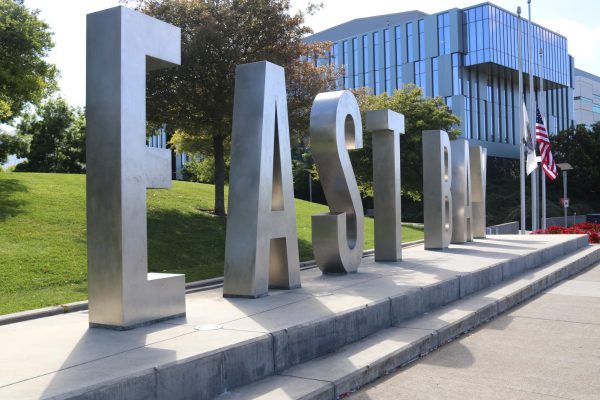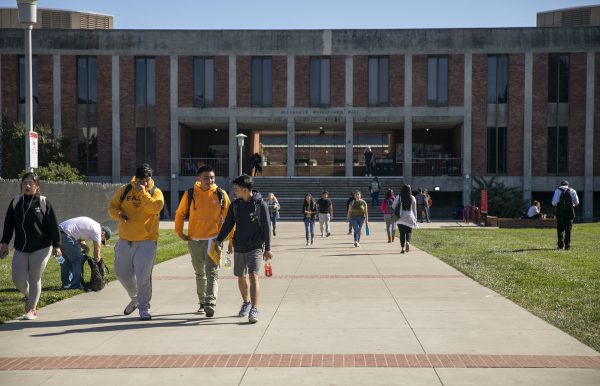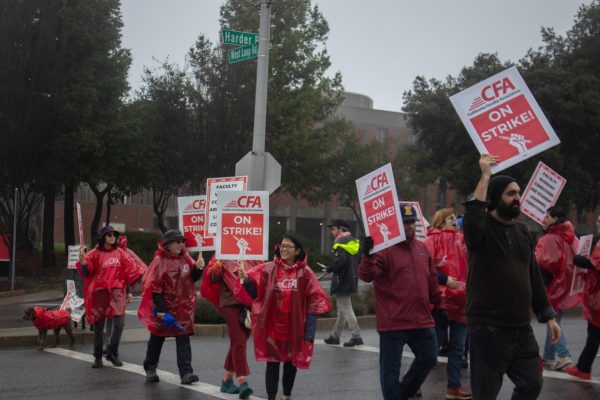What graduates should know when starting the job search, according to AACE career counselor, Matt Harris
April 23, 2021
As we approach graduation at California State University, East Bay, seniors are already looking towards their next steps. It’s not always easy to approach a job hunt, but that’s what career counselors are for. Matt Harris, a career counselor for Academic Advising and Career Education (AACE) at CSUEB, sat down with The Pioneer for an interview regarding the process.
AACE counselors work with students to help them achieve their career goals. “Cal State East Bay has by far the most resources of any career center I’ve worked at. Many of those resources can be found on our webpage at csueastbay.edu/aace,” Harris says. Resources include Handshake, a job site for college students, and individual services with career counselors to receive resume and cover letter advice.
AACE sponsors many hiring events and career fairs throughout each semester on campus however, with the pandemic, they have all been held on Zoom. Graduates are able to take advantage of having the ability to meet with a career counselor and additional resources for up to one semester after they graduate.
For students working on their job applications, Harris offered an outline of the differences between a resume and a curriculum vitae (CV). “In the [United States] it’s usually known as a resume. Technically, a curriculum vitae, i.e., a CV, is a resume with the addition of all the other experience that you have as far as publications, research papers, etc. A resume, conversely, is a snapshot: a condensed version no more than typically two pages that highlights [what] employers are looking for. Again, they can be used interchangeably, but curriculum vitaes are typically used for people going to teach or be a professor in higher education.”
Another critical part of the job hunt is having references. “Professional references are typically what they’re known as and are part of the employment application process. Seniors need to be developing their references as soon as possible,” Harris says. “A true professional reference is a current or former supervisor that can speak on your behalf to the core competencies of the job that you’re applying for. Students may not have anybody that is a former or current supervisor. They need to rely on perhaps former instructors or professionals in the university setting.”
A cover letter is another essential piece of the job application process. “Don’t make it harder than it needs to be. It [a cover letter] introduces the reader to the packet of documents that follows. So, in a cover letter, I would have a quick, two to three-sentence introduction. A body paragraph, maybe two body paragraphs, and then a concise, clear conclusion. It is a one-page business document that has your name, contact information, the date, and the person’s [information] you are contacting. We do have sample cover letters on our webpage,” Harris notes.
Once you’re ready to start looking for a job, while Handshake, LinkedIn, and Google are great platforms, “those are the big ones, and those are where everyone is looking. Unfortunately, you get an ocean of recruiters looking at an ocean of candidates. I encourage students to start with Handshake and then [other platforms]. The hidden job market … I would describe [it] as jobs that won’t necessarily be found on those websites but are available just the same. Search companies, organizations, government websites, and then see what they are hiring for,” Harris mentioned.
Suppose a student is wondering whether graduate school is needed to increase your employability. In that case, Harris is an advocate for graduate school, but he says it isn’t necessarily needed in every career or job path. “When students graduate with a bachelor’s degree in their designated field, they’ve studied for at least four years and developed a lot of highly transferable skills and abilities. They qualify for a lot of jobs right out of college. I would encourage them to look for government-funded jobs … city, county, state. They [often] don’t require anything more than a bachelor’s degree,” Harris advised.
Once you land an interview, “InterviewStream” is a great tool for graduates to utilize, it “is a service that we purchased, we provide it to all students and alumni at no charge. It’s on our website under ‘Interviewing.’ There are over ten thousand pre-scripted interview questions, you can practice [and] it will record your response. This can be really valuable,” Harris mentioned.
The job and internship search is very competitive right now and has been for a while. It is highly encouraged that individuals looking for job opportunities are actively looking for full-time positions. As you’re looking for jobs, apply to positions where you’re qualified, under-qualified, and overqualified to maximize your available opportunities.
Some advice to graduates: “Continue to explore, your classwork is done. You need to shift into career focus. Career development is a skill in itself … get in the career development mindset. How to build professional documents, how to look for careers, how to look for opportunities, how to interview, how to apply, etc. Be curious in different fields … find fields you’re interested in, reach out,” said Harris.
















